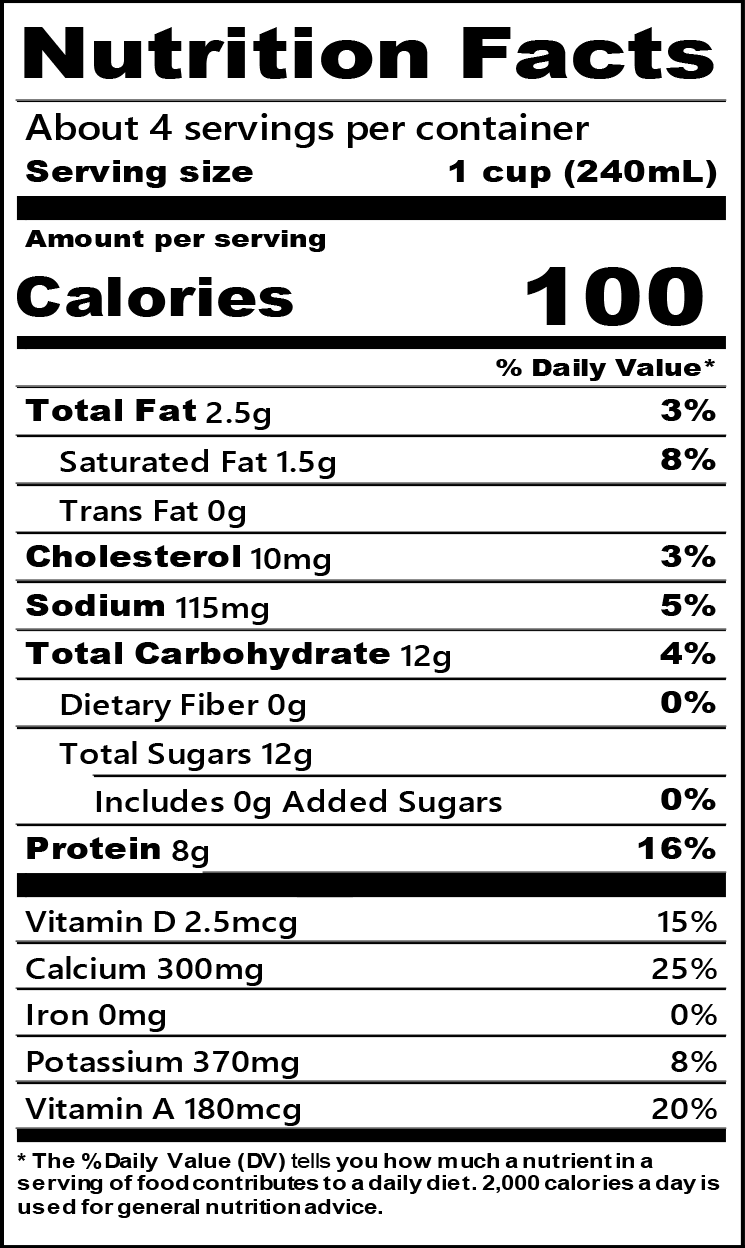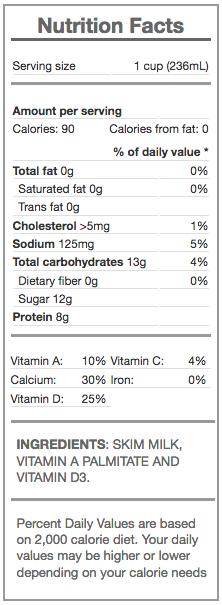
Because skim milk is often considered less flavorful than higher-fat milks, some people don't like the taste of skim milk.

While skim milk offers numerous health benefits, potential drawbacks exist as well. A review published in 2014 in Current Nutrition Reports found that full-fat dairy foods, including whole milk, yogurt and cheese, don't appear to increase heart-disease risks and may even help reduce your risk for developing heart disease. While ingesting large amounts of saturated fat does increase your risk for high cholesterol and heart disease, the saturated fat - consisting of medium-chain triglycerides - found in dairy fat may not be as bad as once thought. Whole milk contains saturated fat and dietary cholesterol, while skim milk provides just negligible amounts of these nutrients. 150 calories in whole milk - but provides about the same amount of protein, vitamins and minerals as whole milk. Skim milk is much lower in calories than whole milk - containing 90 calories per cup vs.

A review published in 2013 in Obesity Reviews found that consuming whey protein, which is abundant in skim milk, helps lower your risk for obesity, maintain lean muscle mass, improve blood sugar levels, lower blood pressure, improve cholesterol levels, and appears to reduce your risk for developing heart disease. You'll help decrease your risk for developing osteoporosis. Protein also aids in healthy weight management because it boosts satiety and energy expenditure.ĭrinking skim milk regularly may provide you with several health benefits. The protein in skim milk contains all essential amino acids your body needs daily, making skim milk a source of high-quality, complete protein. A cup of skim milk provides about 8 grams of protein, but just 90 calories. Many of these nutrients help build and maintain strong muscles, teeth and bones. Skim milk is loaded with protein, calcium, phosphorous, vitamin D and vitamin A. And, while low-fat milk products were once thought of as being heart-healthier than full-fat dairy foods, research doesn't necessarily support this claim.

Overall, incorporating low calorie milk into your diet is a simple and effective way to improve your overall health and wellbeing.Packed with essential nutrients but fairly low in calories, skim milk makes an excellent addition to heart-healthy meal plans. Regular consumption of low calorie milk can help improve overall heart health and reduce the risk of developing chronic diseases.

In addition, low calorie milk can also be beneficial for those with high cholesterol or heart disease, as it contains less saturated fat than whole milk. It can be used as a substitute for whole milk in a variety of recipes such as smoothies, soups, and baked goods, without sacrificing taste or nutrition. The low calorie content of skim milk makes it an ideal option for those looking to manage their weight or reduce their calorie intake. It is a good source of essential nutrients such as calcium, vitamin D, and protein, without the added calories and saturated fats that come with whole milk. Low calorie milk, also known as skim milk or fat-free milk, is an important component of a healthy and balanced diet.


 0 kommentar(er)
0 kommentar(er)
